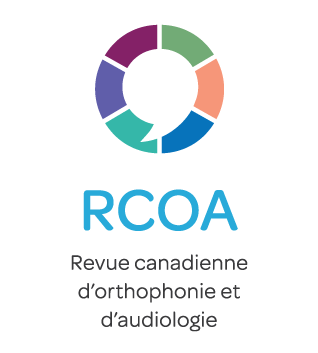

| Auteur(s) |
Joseph Corcoran, PhD Moira A Stewart, PhD |
| Volume | 19 |
| Numéro | 2 |
| Année | 1995 |
| Page(s) | 89-96 |
| Langue | Anglais |
| Catégorie | |
| Mots-clés |
stutter therapy qualitative research stutterer |
| Abrégé | This qualitative study investigated the experiences of seven adults who stutter. The study focused on what the participants had to say about those experiences which had either been detrimental or beneficial to them in their efforts to modify their stuttering. An initial 60- to 90-minute, semi-structured interview, using open-ended questions and probes, elicited the participants' narratives of their experiences of stuttering. A second 60-minute interview assessed the credibility of the investigators' preliminary interpretations. Understanding the relationship were the primary themes that emerged from the analysis of the transcripts. Participants saw the essence of their success in ameliorating their stuttering as being the increase in their knowledge of the nature of stuttering, and most especially, their deepened understanding of their own experience of stuttering, and their resulting ability to both modify and cope with it more effectively. This process of change took place in the context of nurturing relationships. |
| ID | 234 |
| Lien | https://cjslpa.ca/files/1995_JSLPA_Vol_19/No_02_75-140/Corcoran_Stewart_JSLPA_1995.pdf |
La RCOA est une revue en accès libre, ce qui signifie que tous les articles sont disponibles sur Internet dès leur publication, et ce, pour tous les utilisateurs. Les utilisateurs sont autorisés à lire, télécharger, copier, distribuer, imprimer, rechercher ou fournir le lien vers le contenu intégral des articles, ou encore, à utiliser les articles à toutes autres fins légales.
La RCOA ne charge aucun frais pour le traitement ou la publication des manuscrits.
C’est l’Orthophonie et Audiologie Canada (OAC) qui détient les droits d’auteur de la Revue canadienne d’orthophonie et d’audiologie. Il faut mentionner la source (OAC, nom de la publication, titre de l’article, numéro du volume, numéro de la parution et numéro des pages), mais sans laisser entendre que OAC vous approuve ou approuve l’utilisation que vous faites du texte. Il est interdit d’utiliser les documents à des fins commerciales. Il est interdit de modifier, transformer ou développer le texte.